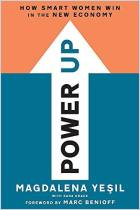
Recommendation
Barbara Stanny, a coach specializing in women and finance, merges the importance of personal fiscal knowledge with the spiritual messages of A Course in Miracles by Helen Schucman and William Thetford. Stanny discusses four steps women can take to fulfill their true purpose – though she recommends gaining financial stability before taking that journey. The steps begin with heeding your “Call to Greatness,” which can arrive as a crisis, a vague sense of unease or anything that upsets your status quo. The second step is to practice “Receptive Surrender” by staying open to your thoughts as you take time to pause and reflect. Third, plan and follow through on “Disciplined Action.” And last, by “Modeling Greatness,” use your gifts to give back with purposeful intent. Stanny falls prey to repetition and cliché, but she offers useful, pragmatic guidance and thoughtful financial advice as she warmly reminds women to heed their intuition. getAbstract recommends her manual to women seeking a financial or spiritual lift.
Summary
About the Author
Barbara Stanny, a speaker and coach specializing in women and finance, wrote Prince Charming Isn’t Coming and Secrets of Six-Figure Women. She appears often in The New York Times and USA Today, as well as on CNN, NPR and Fox News.

















Comment on this summary